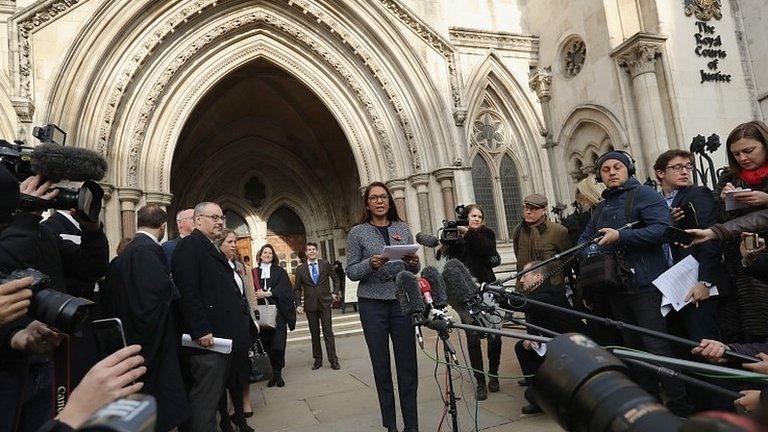What next if the government loses its Brexit appeal?
- Published
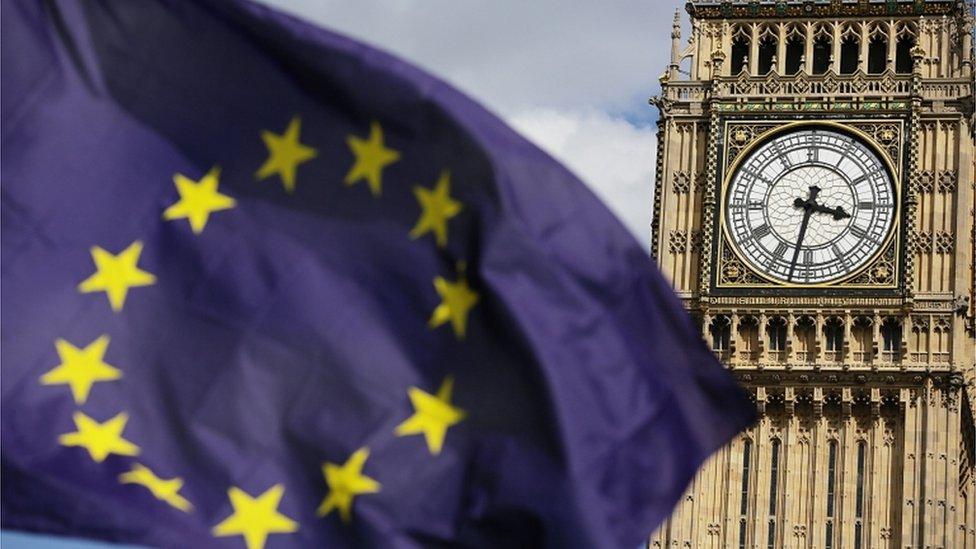
What if, as expected, the government loses its Brexit appeal in the Supreme Court?
The High Court ruling that ministers could not start the process of Britain's exit from the EU without a vote by Parliament was made by the most senior judges in England and Wales, the Lord Chief Justice and the Master of the Rolls, so there is little expectation that the appeal to the Supreme Court will reverse it.
But be careful here - what this is not, is a case of the judges raising a majestic hand and forbidding Brexit. This will be a judgment about the proper process, drawing on accumulated legal precedents all the way back to before the Civil War, and the famous Coke judgment of 1610 that "the King by his proclamation or other ways cannot change any part of the common law or statute law".
That means that if invoking Article 50 irrevocably puts the UK on the path to changing the rights of its citizens, then that decision must be taken in Parliament.
It cannot be done by Crown prerogative, which is the government's preferred method.
Helpfully, it seems that the "supremes" will include in their judgement a clear statement of precisely what Parliament will need to do, should they rule that it must vote on the issue.
Will ministers need to pass a full bill through the Commons and Lords, or will a resolution be sufficient?
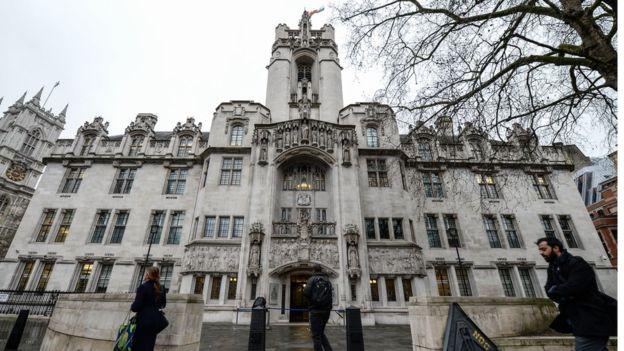
There is always the possibility that they will reverse the High Court ruling and allow ministers to take the decision without a parliamentary vote.
Or they could rule that the government should seek "legislative consent motions" from the devolved assemblies. This would not give them a veto but could allow some further legal challenge via the Scotland Act 2016 and the Wales Bill.
But, back to Westminster.
It is pretty clear that the government could get a resolution or a bill to trigger Article 50 through both Houses.
'Talk 'til drop'
In the Commons, there might be perhaps 80 MPs who could, in some circumstances vote against it - perhaps the SNP, the Lib Dems, the SDLP and a handful of backbenchers from the Conservative and Labour parties.
In the Lords, Labour have made it clear that they would not seek to block Article 50, which makes a blocking majority well-nigh impossible to construct.
A bill would probably present more opportunities for amendment.
There is talk of a "'til they drop" two-day second reading debate, with the normal sitting hours suspended to allow MPs to speak through the night, if necessary.
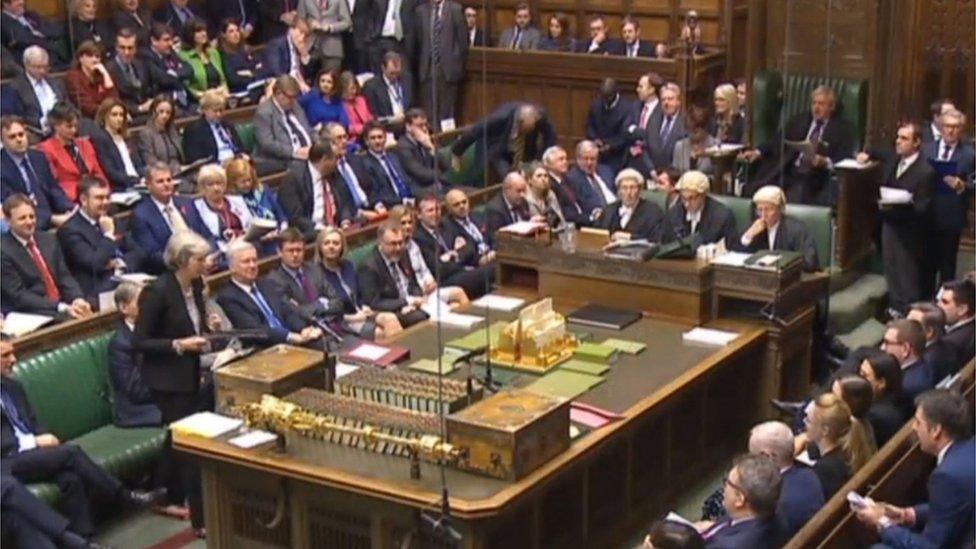
Could the Commons be on for an all-night sitting?
The same would probably then apply to the committee and report stages, so that no-one could argue that any amendments or new clauses had been blocked for lack of time.
MPs might try to set conditions about single market access, or even build in a second referendum.
The operative word here is "try."
Senior Labour figures have made it clear that they won't support any gaming of the Article 50 process that might seem designed to block Brexit.
Their troops might be more prepared to back amendments that request more detailed information from the government - perhaps in the form of a White Paper- or attempt to define a role for Parliament in the negotiations.
Second referendum?
But, in any event, the fullest possible debate in the Commons will limit the scope for amendment in the much more Europhile Lords.
Just about the only scenario I could come up with for the Lords adding - say - a second referendum amendment to the bill, would be if such an amendment had been frustrated in the Commons by procedural means, rather than voted down.
Peers might then be persuadable that they should back a second referendum, and send the bill back to the Commons to force MPs to vote on it.
It is a stretch, but it does offer one way to address the normal Lords inhibitions around "dissing" the elected chamber of Parliament.
'Peers v people'
But the cross-currents of party loyalty and constituency concerns may make it very hard to construct a majority for any of those options in either House.
In the Commons, the Richmond Park by-election will have made MPs conscious of the dangers of going against the referendum vote of their constituencies.
In the Lords, peers are purring contentedly after the government lifted the threat of a reduction in their powers, but are collectively wary of a "peers v the people" row.
Much deeper and more shark-infested waters will surround the next Brexit Bill, the promised Great Repeal Bill, which will repeal the European Communities Act 1972 - the legislation which underpins Britain's membership of the EU.
It is expected to feature in next May's Queen's Speech but will not come into effect until the day of Brexit.
The bill would incorporate all existing EU law into UK law, but this is much more complicated in practice than it sounds, among other things because much of this EU law involves EU regulatory bodies, which the UK government might or might not want to remain under.
By the time this bill comes before MPs, the consequences of Brexit will have crystallised a bit, which will open up some scope for targeted amendments on specific issues.
Challenging Article 50 is a hard sell after the referendum.
Picking at the terms of Brexit, which is a matter of interpretation, is something where Remainers may feel they have room for manoeuvre to press for their vision of a "soft Brexit".
- Published18 November 2016
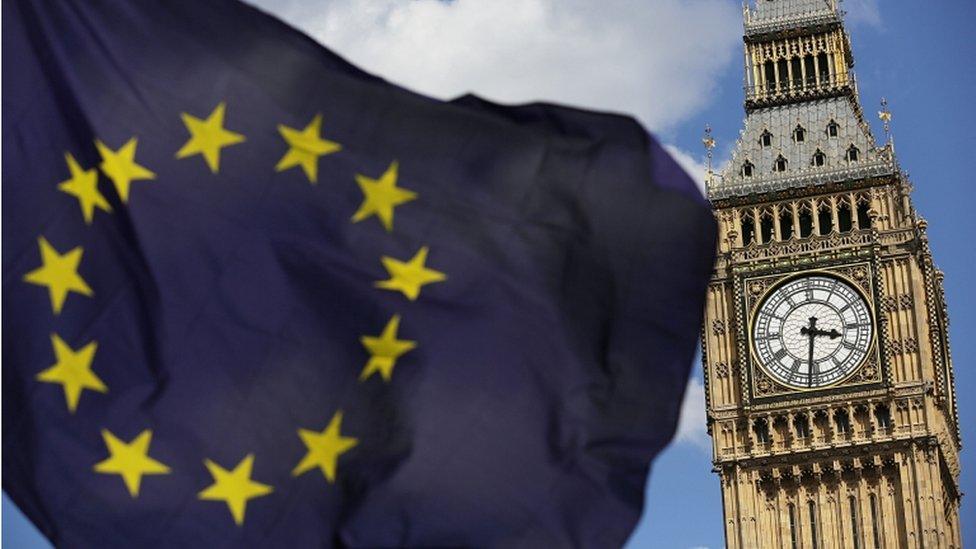
- Published25 September 2019

- Published3 November 2016
